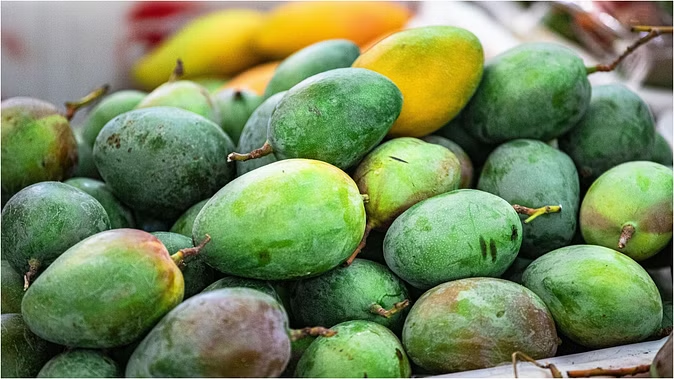Summer season is incomplete without mangoes. Mango, known as the king of fruits, contains many types of vitamins and other nutrients that our body needs regularly. Apart from being a good source of Vitamin C, it is also rich in fiber which helps increase immunity and maintain proper digestion. For example, mango is not only a favorite fruit in terms of taste but it can also have many health benefits.

But do you know that as much as we love this amazing fruit, it is important to be careful about its side effects. Paradoxically, eating mango is considered better for digestion due to fiber, but if it is consumed in excess, it can lead to problems like swelling, diarrhea, stomach ache, ulcers, and indigestion.
Health benefits of mango
Studies show that mangoes are rich in phytonutrients that our bodies need to stay healthy. However, in some situations, due to its excessive consumption, there can be a risk of increased sugar, diarrhea, and many other health problems.
Health experts say, that if you eat mango without washing it properly after bringing it from the market, then the harmful elements used to cook it can enter the stomach, due to which there can be a risk of increasing poisoning.
These precautions are necessary before eating mango
Medical reports show that most of the fruits are cooked using unnatural methods. For this, a chemical called calcium carbide (CaC2) is used. When calcium carbide is mixed with water, acetylene gas is released from it. Acetylene gas helps in ripening the fruits.
There is a risk of poisoning by eating fruits cooked with calcium carbide. Due to this, there is a risk of serious skin problems along with poisoning and kidney failure. Therefore, before eating mango, soak it in water for at least two hours and eat it only after washing it thoroughly.

Digestion problems due to eating too much mango
Pune-based dietitian Priyanka Nagar (MSc Nutrition) says that consuming mangoes in excess can lead to digestive problems, mainly due to their high fiber content. Consuming excessive fiber increases the incidence of bloating, gas, stomach cramps, and diarrhea. It is better to consume mango in limited quantity. One should not eat more than 3-4 mangoes a day.
Risk of increased blood sugar
Mango is one of the fruits with high glycemic index which means it can cause a rapid increase in blood sugar levels if consumed in excess. For individuals with diabetes or insulin resistance, this may put them at risk of sugar spikes. Dietitian Priyanka says diabetic patients should avoid eating mangoes. People whose sugar is under control can eat one mango a day on the advice of their doctor.
(PC: ISTOCK)










